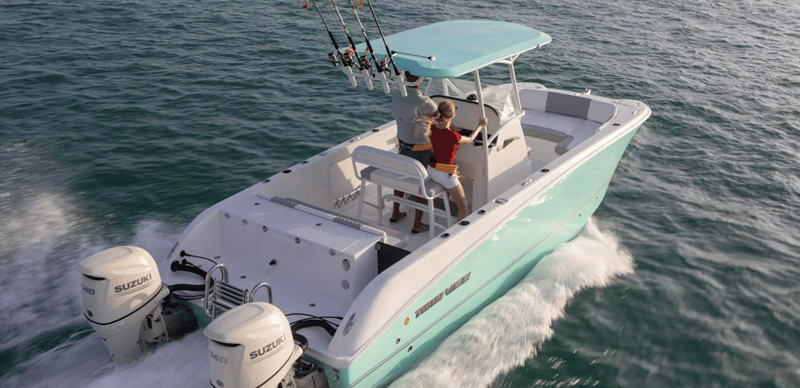
As the New Year approaches, it's an excellent time for boaters to reflect on their experiences and set goals for the upcoming year. Here are some boating New Year's resolutions to consider:
Going on a boating trip for a few days is an amazing experience. The off-the-grid boating lifestyle, glamorously portrayed by a diverse range of YouTube channels, has become a trending item on many boaters' bucket lists. This lifestyle involves traveling from one spot to another to explore, fish, dive, and boat.
However, to ensure that everything goes smoothly and safely, it's crucial to consider all the factors involved in planning. This guide is designed to help you make the most of your adventure and create unforgettable memories.
Check Weather Conditions
Monitor weather forecasts leading up to your trip. Be aware of wind, wave, and storm predictions. Avoid boating in adverse weather conditions.
Inspect Your Boat
Ensure the engine, fuel system, and electrical components are checked. Verify all safety equipment is onboard and in good working condition. Test communication devices, such as VHF radios, and verify that navigation lights are functioning properly. Keep in mind that you will pack quite a bit more than normal.
Fuel and Range
Calculate fuel consumption based on your boat's specifications and planned routes. Carry extra fuel if necessary, considering the distance and fuel availability.
Navigation and Route Planning
Plan your route, including waypoints, ports of call, and anchorages. Use updated nautical charts and GPS systems. Be aware of any restricted areas or navigational hazards. Don’t relay completely on your marine electronics always have physical charts as back up.
Safety Equipment
Ensure life jackets are available for all passengers. Have a first aid kit on board. Check fire extinguishers and other safety equipment.
Communication Devices
Bring a VHF marine radio for communication with other boats and emergency services. If you are going to document your journey, make sure you take into account camera’s and laptops. Carry a fully charged cellphone in a waterproof case, and charger banks can also come in handy to keep devices charged. A small solar panel can also be fitted to the cabin top to charge devices.
Float Plan
Share your trip itinerary with someone on land, including departure and arrival times, planned stops, and emergency contacts. Stick to your float plan as closely as possible.
Provisions and Supplies
Bring enough food and water for the duration of the trip. Remember that this must be rationed and carefully calculated, especially if you will be venturing remotely. Pack extra clothing, considering weather changes. Ensure you have any necessary medications.
Anchoring and Mooring
Know the regulations for anchoring and mooring in the areas you plan to visit. Bring appropriate anchoring gear.
Check Local Regulations
Be aware of any specific boating regulations or restrictions in the areas you'll be visiting.
Emergency Preparedness:
Familiarize yourself with emergency procedures and the location of safety equipment. Have a plan for engine failure, medical emergencies, or other unexpected situations.
Environmental Responsibility
Follow the “Leave No Trace” principles and dispose of waste properly. Respect marine life and habitats.
Recreational Activities
Bring equipment for spearfishing, diving, fishing, and hiking if that's part of your plan. if your plan is to live off the catches of the day or speared fish, make sure you take durable equipment. Ensure you have the necessary licenses and permits for fishing.
Check Tides and Currents
Be aware of tidal predictions and currents in the areas you plan to navigate.
Inform Local Authorities
Make sure to inform local authorities about your boating trip and comply with any regulations or requirements they have in place. Check in with local marinas or harbormasters, especially if you're entering a new area.
It’s important to remain flexible when planning a boating trip, as weather conditions and other factors can change unexpectedly. Prioritizing safety, keeping informed, and having a contingency plan for unexpected situations is always a good idea.
Remember to share the videos and photos of your adventure with us!
